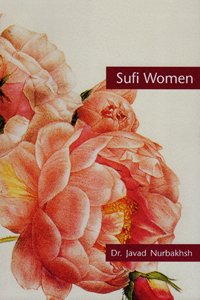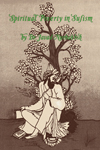



In the Prologue of Dr. Javad Nurbakhsh's book Sufi Women the question "Is there any difference between men and women in terms of their faith?" is plainly addressed. With candid simplicity, Dr. Nurbakhsh writes that women who seriously set foot on the path toward Reality are in exactly the same position as men who do so. He goes on to extol: "Since in the Ocean of Divine Unity neither "I" or "You" exists, what possible meaning can man or woman have?". This enlightening book offers the reader a profound respect accorded through the centuries in writing about women in Sufism from the early days of Islam to the present day, presenting the biographies and anecdotal stories of a number of highly reputed women who were sufis. Beginning with Rabe’ah, the most famous sufi woman of early times, who it was said was robed in the quintessence of pain from foot to face, immersed in the Truth, effaced in the radiance of God and liberated from all superfluous excess to dozens of others, including annoymous women who's stories are here set down. Dr. Nurbakhsh's book also contains one of the most succinctly written overviews of the history of Sufism including its first appearance in seventh century A.D. and its later transformation towards the elements of love (ishq) and loving kindness (mahabbat).
Rabe’ah belongs to that elect company of sufi women who have surpassed most of the contemporary sufi masters of their time in wayfaring to God. If one wished to cite the names of some of the great sufi saints from the early days of Islam to the present day, inevitably the name of Rabe’ah would be among them. That the excellence of Rab’ah’s piety (taqwa), gnosis (ma’refat), and ascetic self-restraint (zohd) have made her almost a symbol of saintliness among women sufis suffices to illustrate her unparalleled status. Her perfection and the virtues of her soul (faza’ el nafsani) evolved far beyond many of the later sufi saints, making her renowned as the “Crown of Men” (Taj al-Rejal).
Faridod-din ‘Attar’s ecstatic praise of her in the Conference of the Birds echoes these sentiments:
No, she wasn’t a single woman
But a hundred men over:
Robed in the quintessence of pain
From foot to face, immersed in the Truth,
Effaced in the radiance of God,
And liberated from all superfluous excess.
 Classical Persian Sufism from its Origins to Rumi (700-1300)
Classical Persian Sufism from its Origins to Rumi (700-1300)
 Dogs from a Sufi Point of View
Dogs from a Sufi Point of View
 Jesus in the Eyes of the Sufis
Jesus in the Eyes of the Sufis
 Spiritual Poverty in Sufism
Spiritual Poverty in Sufism
 The Great Satan 'Eblis'
The Great Satan 'Eblis'
 The Legacy of Mediaeval Persian Sufism
The Legacy of Mediaeval Persian Sufism